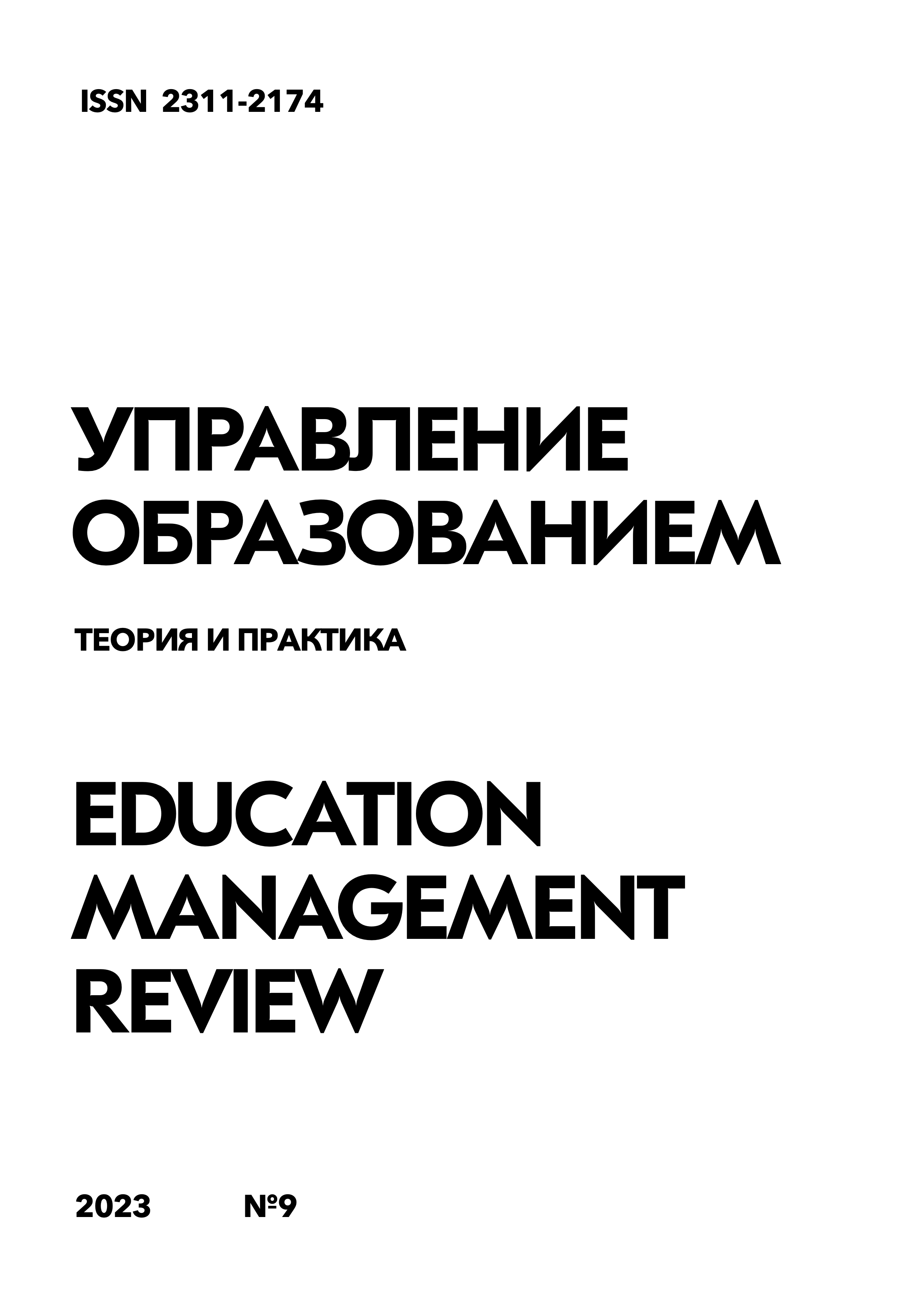Formation of international competence of students to increase the level of internationalization of the educational institution
DOI:
https://doi.org/10.25726/f4007-1200-0197-xKeywords:
international competence, internationalization, education, globalization, educational institution, cultural interaction, intercultural communicationAbstract
In the era of globalization and the digital revolution, the world academic sphere is undergoing a transformation, bringing to the fore the issues of internationalization of pedagogical methods. Global educational institutions are exploring the possibilities of adapting to universal educational criteria, investing resources in international research projects and striving to develop training courses that meet the ambitions and needs of the global academic arena. For Russia, a nation with deep cultural and scientific roots, the issues of global integration in the educational sector are of particular relevance. However, Russian academic centers have faced difficult obstacles, stemming, in particular, from political pressure and economic restrictions from the West. This has created problems in the areas of international partnership and attracting international academic resources. Nevertheless, in an effort to overcome these difficulties, Russian academic institutions are initiating strategies to strengthen relations with partners from Asia, Latin America and Africa. They also focus on creating training programs that meet modern global standards. The present study focuses on methods of strengthening the international competence of students in order to effectively integrate Russian education into the world academic scene. During the analysis, it becomes obvious that Russian educational institutions, acting on the basis of their unique academic heritage, are successfully adapting to the global dynamics in the field of higher education. The above material is the results of a study that focuses on the activities of leading Russian universities, their global ambitions and the experience of international collaboration. Based on the information received, key strategies and methods for the formation of international competence among students are formulated, which, in turn, can become the foundation for further progress of Russian education on the world stage.
References
Абдулаева О.А., Ляпцев А.В. Естественно-научная грамотность. Физические системы: тренажер: 7-9 классы: учебное пособие для общеобразовательных организаций. Под ред. Алексашиной И.Ю. М.: Просвещение, 2020. 224 с.
Алмазова Н.И., Мушенко Е.В. Междисциплинарная интеграция как основа формирования готовности аспирантов медицинских вузов к коммуникации в профессиональной среде // Вопросы методики преподавания в вузе. 2020. Т. 9. № 34. С. 8-23.
Ахметова А.Ж., Дальбергенова Л.Е. Понятие «межкультурная коммуникативная компетенция» в современной методике преподавания иностранного языка. https://ulagat.com/2020/11/27
Буренкова Н.В. Данилова Т.В., Сидорина М.С. Инновационные технологии как фактор реализации компетентностного подхода в образовании. Саратов: Ай Пи Ар Медиа, 2019. 220 с.
Басюк В.С., Ковалева Г.С. Инновационный проект Министерства просвещения «Мониторинг формирования функциональной грамотности»: основные направления и первые результаты // Отечественная и зарубежная педагогика. 2019. Т. 1. № 4 (61). С. 13-33.
Василиженко М.В. Поиск альтернативных методов дополнительной подготовки обучающихся английскому языку // Актуальные проблемы теории и практики профессионального образования в контексте глобализации: Материалы Международной научно-практической конференции. Челябинск: ЧОУВО МИДиС, 2019. С. 14-17.
Захарова Е.А. Лингвострановедение в обучении иностранным язык // Молодой ученый. 2017. № 21.1 (155.1). С. 7-8. URL: https://moluch.ru/archive/155/43965/
Зеленина Л.Е. Критерии оценивания при обучении магистрантов неязыковой образовательной организации научной дискуссии // Правоохранительные органы: теория и практика. 2019. № 1. С. 147-148.
Киселев Ю.П., Ямщикова Д.С. Естественно-научная грамотность. Живые системы: тренажер: 7-9 классы: учебное пособие для общеобразовательных организаций. Под ред. Алексашиной И.Ю. М.: Просвещение, 2020. 224 с.
Коровкина М.Е., Семенов А.Л., Ершов В.И. Компетентностный подход к переводу специальных текстов // Филологические науки в МГИМО. 2020. №22 (2). С. 69-75. URL: https://doi.org/10.24833/2410-2423-2020-2-22-69-75
Липатова Е.Г. Формирование профессиональной коммуникативной культуры будущего врача в рамках компетентностного подхода // Вопросы методики преподавания в вузе. 2020. Т. 9. № 32. С. 47-58.
Пентин А.Ю., Заграничная Н.А., Паршутина Л.А. Комплексные межпредметные задания с химической составляющей как инструмент формирования и диагностики естественно-научной грамотности учащихся // Школьные технологии. 2016. № 6. С. 120-128.
Салпагарова А.А., Текеева Э.К. Подходы и методы преподавания грамматики английского языка // Проблемы современного педагогического образования. 2018. № 58-2. С. 4.
Смирнова Е.С., Пентин А.Ю., Ковалева Г.С., Давыдова Е.И. Состояние естественнонаучного образования в российской школе по результатам международных исследований TIMSS и PISA // Вопросы образования. 2018. № 1. С. 79-109. DOI: 10.17323/1814-9545-2018-1-79-109
Шлепнев Д.Н. Переводческие компетенции и как о них с пользою говорить со студентами // Перспективы науки и образования. 2017. № 3 (27). URL: https://pnojoumal.files.wordpress.com/2017/04/pdf_170305.pdf
Шкерина Л.В. Мониторинг качества профессиональной подготовки учителя математики // Красноярский государственный педагогический университет им. В.П. Астафьева. Красноярск. 2021. 238 с.
Guzey S.S., Jung J.Y. Productive Thinking and Science Learning in Design Teams. Int J of Sci and Math Educ 19, 2021. 215-232 p. DOI: 10.1007/s10763-020-10057-x




